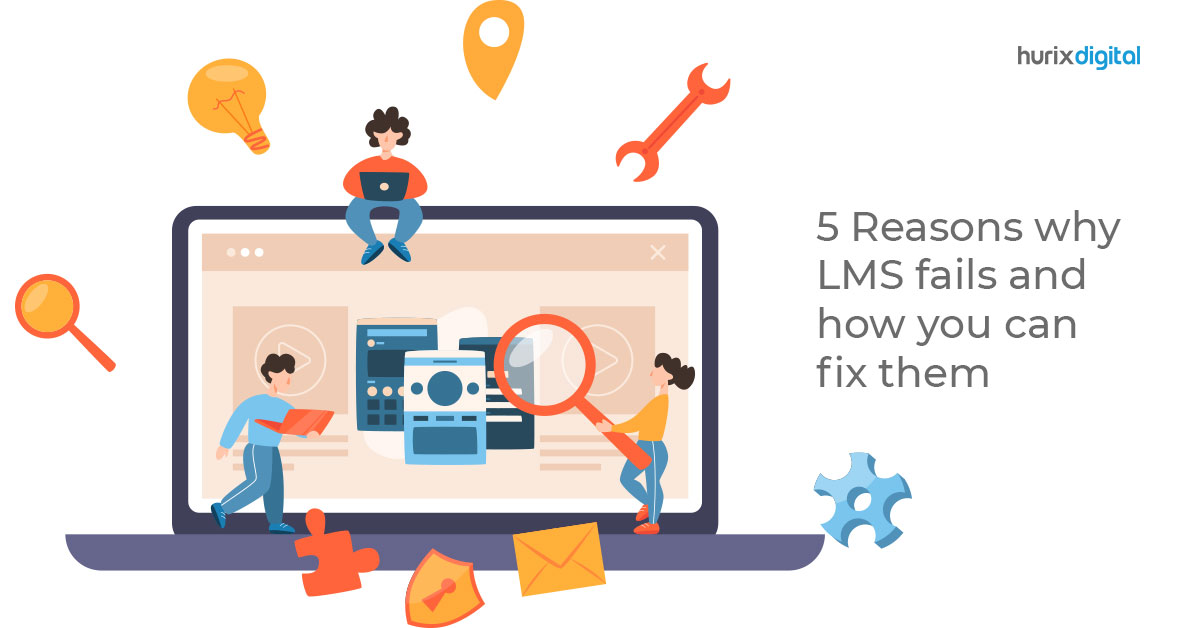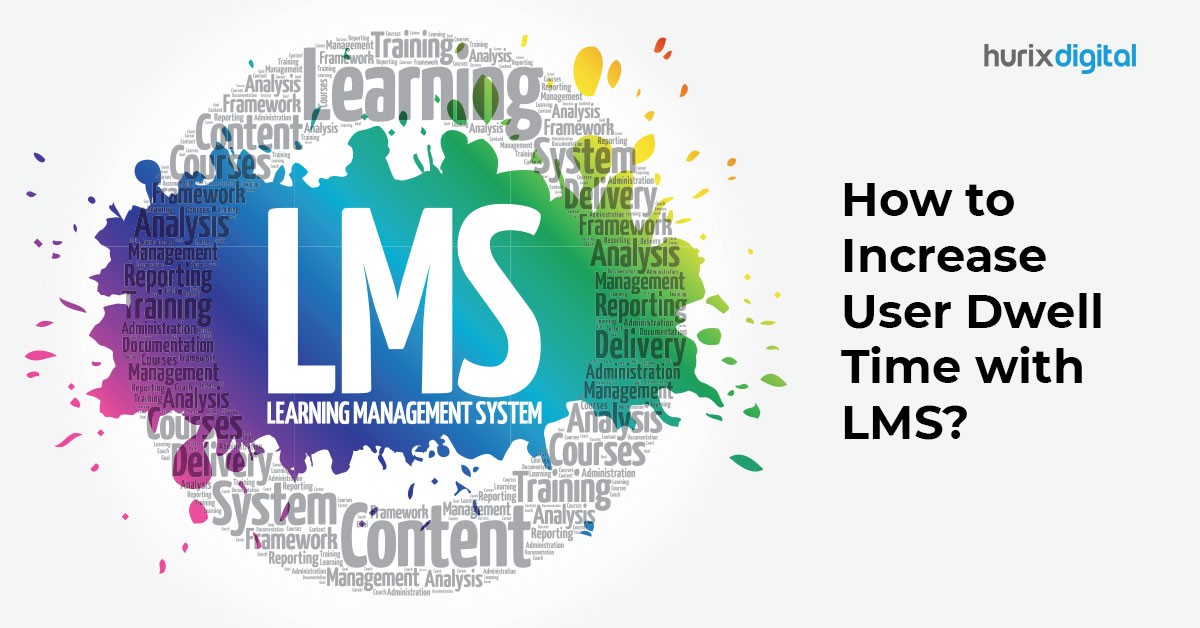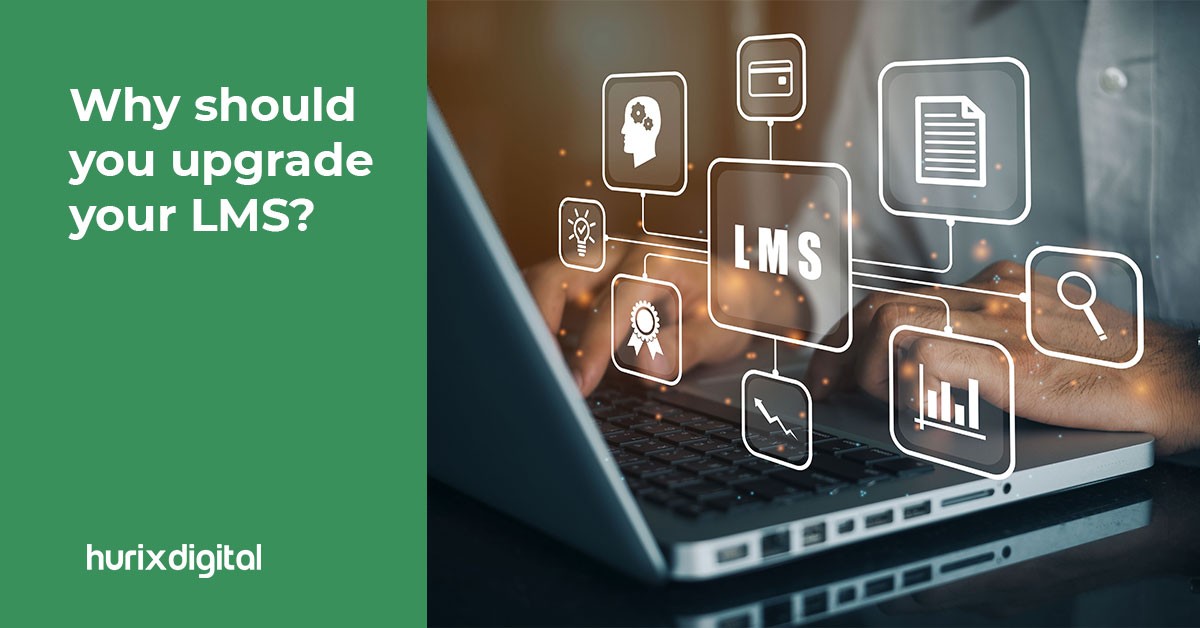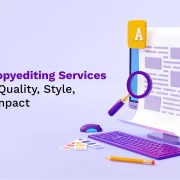
5 Reasons Why LMS Fails and How You Can Fix Them
Realizing the many benefits of a Learning Management System (LMS), companies worldwide are rapidly transitioning to this digital training facilitator. However, the growing adoption of LMS has brought the challenges of its successful implementation to the fore.
A Brandon Hall Group’s recent study finds that nearly half of the companies are dissatisfied with their current LMS, requiring changing to a new one.
So what went wrong? It would surprise you that LMS failures often have little to do with the software itself.
Below, we will look at five reasons why the implementation of LMS platforms fails and how you can fix them.
Also read: 5 Benefits of an AI-based LMS
Table of Contents:
5 Reasons Why LMS Fail
1. Not Having a Strategy in Place
Firstly, it is important to understand that LMS is a tool that can enhance and improve the way you train your staff. However, it is not a magical fix for all the training-related problems, such as the material you train them on.
So even if you have a feature-packed LMS platform, you would still need a training strategy to get the most out of it.
Solution: Develop an LMS Strategy First
To build an effective LMS strategy, focus on the following aspects:
1. Identify Your Goals
What specific employee-training issues would you like the LMS to solve? For example, perhaps you want to increase employee engagement or reduce training costs. Identifying the goals can help you select the right platform that meets them.
2. Know Your Stakeholders
Consider concerns such as the tech literacy of the employee or the budget your senior leadership is willing to allocate for the learning and development department.
3. Make a Program Management Strategy
It includes allocating administrative resources, setting up course access, and measuring performance and ROI.
2. Choosing a Complicated LMS
While features are intended to improve LMS functionality, having too many of them can overwhelm the users and impact their user experience.
The 2020 Docebo study finds poor user experience as one of the top barriers to satisfaction with learning technology.
Remember that the purpose of LMS is to make it easy for trainers to complete and manage their training effectively. A cluttered and complicated LMS will do just the opposite. It will disengage users and, worse, isolate employees that aren’t tech-savvy.
Solution: Run a Trial Before Purchasing a New LMS
Most LMS Vendors offer a trial or demo to help you evaluate how well the LMS works for your organization. Take advantage of the offer and get your employees’ feedback.
Make sure to pick an LMS that makes it easy for managers to track performance and is user-friendly and engaging for the employees.
Here are the five best LMS platforms that you can consider.
3. Lack of End-User Support
Customer support or after-sale service is vital for the success of the LMS, especially at the initial stages.
Implementing an LMS or switching the LMS platform entails various processes such as data integration, course setup, learner enrollment, reporting requirements, etc. These functionalities take time to master; until then, administrators may have to rely on vendor support.
Even after a successful transition, you may require LMS maintenance and support service to make minor fixes or enhance your features. Or else your investment might go to waste.
Solution: Choose a Vendor that Provides After-Sale Support
Conduct prior research to ensure that the LMS you choose provides superior customers to your administrators and end-users. For example, with such an LMS partner, you can implement and run online employee training programs even without a dedicated tech department.
Here’s a guide on how to choose the best LMS service for your organization for your perusal.
4. Hidden or Recurring Costs
There is no doubt that employing LMS is a cost-effective method of employee training. By taking the training digitally, you can save on the traveling and venue costs and do away with the need to hire multiple trainers or spend on printing material.
But before you purchase an LMS from the first vendor you meet, you must carefully conduct proper research. The upfront cost may seem attractive, but hidden charges, such as LMS maintenance or course development costs, may be higher than your expectation or budget.
Solution: Do Proper Cost Research and Analysis
Do not be swayed away by enticing offers from vendors. Instead, ask them scenario-based questions and try to probe around the possibilities of any hidden costs. Always study the terms and conditions behind their pricing plans.
Creating a realistic LMS budget and deciding on your ideal pricing structure before you start vetting vendors is essential.
For instance, should you go for pay-per-use pricing, or is a flat monthly fee more economical? Should you implement an LMS yourself or hire a provider? How much are you prepared to spend in case something comes uninvited?
It is always prudent to leave some leeway in your budget for unexpected expenses.
5. Poor Communication
This applies to communication on all fronts: with the vendor, implementation team, and end-users.
For many LMS buyers, vendor communication starts and ends with negotiating the payment terms. If you do not communicate your objective to the vendor, they will not be able to provide you with the best features.
Similarly, by not involving your team in the selection process and the implementation plan, you wreck your chances of successful LMS implementation.
Solution: Involve All Stakeholders in Discussions
Involve department heads in your selection plan as they have the best idea of the learning objectives of their team. Then communicate the objective and expectations clearly to your vendor. Finally, inform all employees of the new LMS platform’s launch, scope, and requirements to prepare them for the rollout in advance.
Also read: Why do we need an AI-Based Recommendation Engine in an LMS?
Final Words
Proper planning and preparation is the key to successful LMS implementation. You’ll need an understanding of your requirement, a sound LMS strategy, and an awareness of what LMS platform best fits your organization.
At Hurix, we help organizations across industries achieve their learning goals with our custom-created LMS solution that is engaging and user-friendly. Equipped with the latest technology and software infrastructure, we offer innovative ways to access and distribute learning content that serves modern-day learners.
Get in touch with us today to discover the stellar benefits we offer you and your learners.

Vice President & SBU Head –
Delivery at Hurix Technology, based in Mumbai. With extensive experience leading delivery and technology teams, he excels at scaling operations, optimizing workflows, and ensuring top-tier service quality. Ravi drives cross-functional collaboration to deliver robust digital learning solutions and client satisfaction








